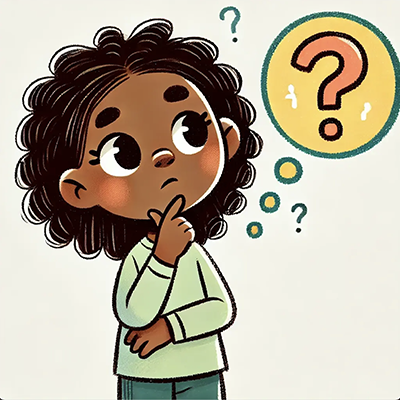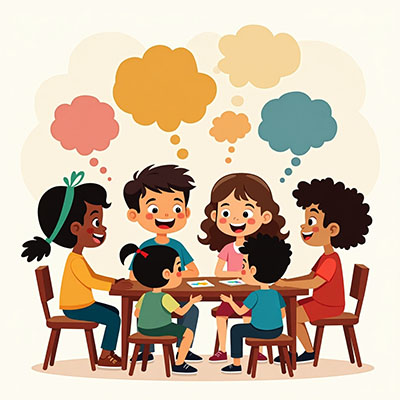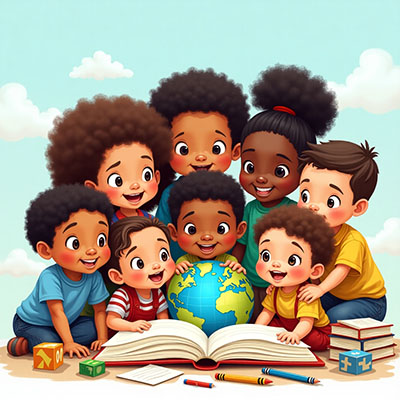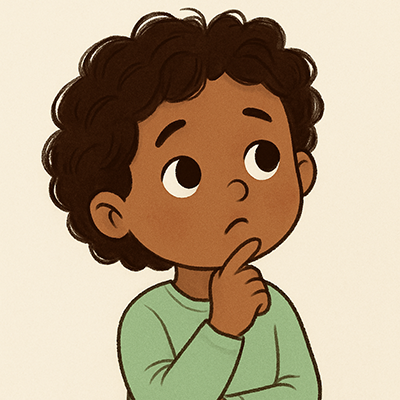Our research investigates how children form, revise, and evaluate beliefs, especially in social and moral contexts. We examine how other’s claims influence children’s moral judgments, when children rely on their own reasoning versus others’ testimony, and how they navigate disagreement and conflicting perspectives. By studying children’s learning and socio-moral judgments, we aim to uncover the developmental origins of epistemic and moral virtues such as intellectual humility. Our work sheds light on how children learn to reason independently, engage constructively with diverse viewpoints, and become more compassionate, open-minded, and empathetic members of society. Click below to learn more about each study.
Belief Change Study | Conflicting Beliefs Study | Information Responsibility Study | Children’s Sociomoral Reasoning | Reasons for Belief Change
Belief Change Study

How do children evaluate peers who change their beliefs or actions after learning new moral information?
In this study, we are exploring how children judge peers who respond differently to new moral information about eating meat. Children hear stories about peers who face moral considerations that conflict with the norms of their community. We aim to better understand how children think about belief change and moral consistency.
How to Participate: Children between the ages of 6-10 years old who regularly eat meat are eligible to participate in this study. Please fill out this interest form [form link] or email us at socialandmorallearninglab@gmail.com for more information.
Conflicting Beliefs Study
Can children understand that people might hold conflicting beliefs in their minds?
In this study, we ask children to judge whether it is possible for two characters to disagree about what’s true, or for a single character to feel torn between two different beliefs or desires. By examining children’s judgments about these scenarios, we aim to uncover how young children grasp the possibility of holding conflicting views, and how this shapes their developing understanding of belief and perspective-taking.
How to Participate: Children between the ages of 4-8 years old are eligible to participate in this study. Please fill out this interest form [form link] or email us at socialandmorallearninglab@gmail.com for more information.

Responsibility in Sharing and Receiving Information

How do children decide whether someone is responsible for an inaccurate belief when their access to information is limited?
In this study, we explore how children evaluate people who hold inaccurate beliefs under different circumstances, such as cases where someone lacks access to reliable information versus cases where the information is freely available but ignored. By examining children’s judgments about responsibility, we aim to understand how they think about when to hold others accountable for their beliefs.
How to Participate: Children between the ages of 6-10 years old are eligible to participate in this study. Please fill out this interest form [form link] or email us at socialandmorallearninglab@gmail.com for more information.
Children's Sociomoral Reasoning about Relationships
How do different social relationships influence children’s evaluations of decision-making in moral dilemmas?
To navigate social life, people form close relationships that often involve offering both physical and emotional support. But what do we truly value in these connections? We may prefer friends who consistently behave in morally upright ways. At the same time, we might favor friends who show partiality toward us and even judge those who act impartially—or merely fairly—in certain situations. Do young children share these expectations about close relationships? Do different social relationships influence children’s evaluations of decision-making in socio-moral dilemmas?
How to Participate: Children between the ages of 6-9 years old are eligible to participate in this study. Please fill out this interest form [form link] or email us at socialandmorallearninglab@gmail.com for more information.

Reasons for Belief Change

Do different adults impact how children think about the possibility of belief change?
In this study we are interested in how children think about belief change in different stories. In these stories the main character holds a belief, which an adult attempts to change, by giving different types of reasons. We then ask children about whether or not the characters can and should change their beliefs.
How to Participate: Children between the ages of 5-9 years old are eligible to participate in this study. If you are interested, fill out this interest form [form link] or email us at socialandmorallearninglab@gmail.com for more information.